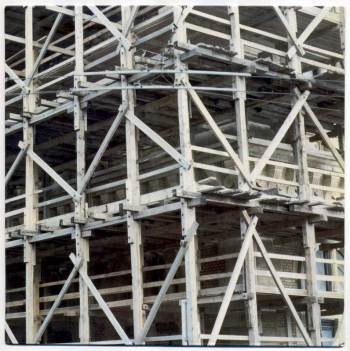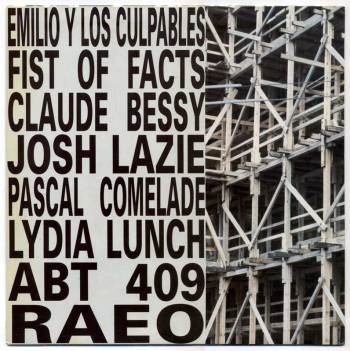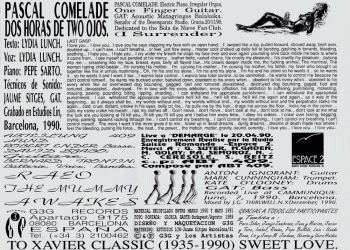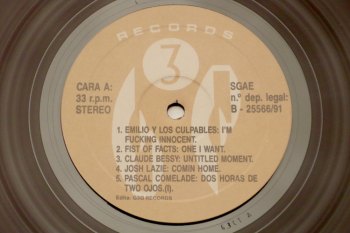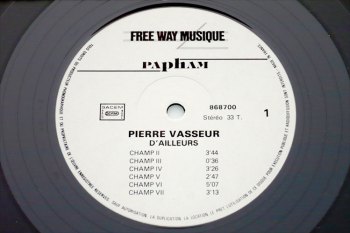Avantgarde music company Lovely Music, Ltd was founded by Robert Ashley’s wife Mimi Johnson in New York in 1978. Apart from Ashley’s magnum opus Perfect Lives in 1983, Lovely published Alvin Lucier, David Behrman, “Blue” Gene Tyranny, Pauline Oliveros or Annea Lockwood, among others. Still active today after almost 35 years, Lovely is a major avantgarde music label.
Published in 1980, this box set of single records introduced new artists of the Lovely stable, in addition to early associate “Blue” Gene Tyranny, who already had 3 LPs out on Lovely in 1980. Some of these composers, but not all, will later release full-length LPs on Lovely, like Paul DeMarinis or Maggi Payne. Most composers here (e.g.: Bischoff, DeMarinis, Payne, Gene Tyranny) came from the Mills College Center for Contemporary Music, directed by Robert Ashley in the 1970s, hence the presence of the Golden Gate Bridge on the cover. In any case, as far as I can tell, these tracks are exclusive to this compilation and never appeared elsewhere.
♫ John Bischoff introduces some of his early, hacked computer sounds and DIY circuitry with legendary band The League of Automatic Music Composers, as well as a solo recording mixing car engine sounds and oscillators. Paul DeMarinis‘ two tracks weren’t included on his Music As A Second Language CD on Lovely in 1991. If God Were Alive… is for voice, tamboura and modified Speack’n’ Spell. A classicaly-trained flutist, event organizer and musical activist, Phil Harmonic, aka Kenneth Werner (1949–1992), contributes two tracks of sound collages from street recordings, radio broadcasts, rehearsals, found sounds or conversations. Frankie Mann was a Californian experimental radio producer in the late 1970s, running a show on Berkeley’s KPFA-FM, the radio where Charles Amirkhanian broadcasted his famous avantgarde music shows and interviews. Mann’s 2 tracks here are rather different, the first being a minimalist, new wave-ish song, the other an electroacoustic collage. After a pair of floating, out-of-this world electronic tracks by Maggi Payne, “Blue” Gene Tyranny delivers his portrait of San Francisco politician and gay activist Harvey Milk, based on demonstration recordings, political address and electronic sounds.
John Bischoff
01 Silhouette (6:05)
02 The League Of Automatic Music Composers, December 17, 1978 (8:52)
Paul DeMarinis
03 If God Were Alive (& He Is) You Could Reach Him By Telephone (7:28)
04 Forest Booties (10:56)
Phil Harmonic
05 Phil Harmonic’s Greatest Hits (7:52)
06 WPA/Composite Mix (9:18)
Frankie Mann
07 I Was A Hero From The Mayan Debutante Revue (9:31)
08 How To Be Very Very Popular (Excerpt) (8:59)
Maggi Payne
09 Lunar Desk Lunar Dusk (7:56)
10 Lunar Earthrise (Excerpt) (7:38)
“Blue” Gene Tyranny
11 Harvey Milk (Portrait) Part I – The Action (9:23)
12 Harvey Milk (Portrait) Part II – The Feeling (9:51)
Total time 1h43mn
Box-set with six 7-inch records issued by Lovely Music, NYC, 1980
Download (incl. 28pp PDF booklet)
* *
*






